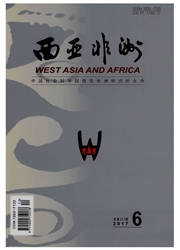

 中文摘要:
中文摘要:
中东变局以来,阿曼开启国家治理转型进程。在政治方面,政府扩大社会参与,加强政治精英治理能力,注重法治内涵建设,并取得公民参与效能提升、行政权力制衡能力增强、司法与行政分离等成效,但存在参与机制缺陷、治理权力极化、转型道路波折等问题。在经济方面,阿曼政府调整就业和薪资政策,规范市场法律准则,推进经济机构改革,谋划中长期经济目标,努力降低失业率、提高市场自由度、增强经济驱动力。然而,阿曼经济治理的绩效总体不良,且受到外部国际市场影响较大。在社会发展方面,政府完善治理体系,强化宗教文化的宽容、中正原则,将生态保护作为生态治理的政策基石,但其效能未获充分体现,尤其是应对青年群体崛起的问题凸显。整体而言,阿曼国家治理仍需主动谋变,提升政府、社会组织和公民个人等社会主体的治理能力。
 英文摘要:
英文摘要:
beginning of the strengthened the law, which has balance of the Oman started the transformation process of state governance in the Middle East upheaval. Politically, it expanded social participation, governance of the regulators themselves and paid attention to rule of achieved the effectiveness of citizen participation, check and administrative power, and the separation of justice and administration. Yet, there are some problems in defects of participation mechanism, polarization of governance power, and setbacks of transformation process. Economically, in order to reduce the unemployment rate, increase markets freedom and enhance the driving force of economy, Oman adjusted the policies of employment and salary, standardized the legal norms of market, reformed the economic institutions and released long- term economic goals. However, the result of economic governance at the local level seems unsatisfactory, and the vulnerability of its economy to the impact of international markets remains unchanged. In social aspect, Oman improved the governance system, highlighted the tolerant principle among religions and cultures, and made ecological protection as the cornerstone of policy for ecological governance. However, the effectiveness of these measures has not been fully reflected, especially in dealing with the rise of youth groups. In general, in state governance, Oman still should take the initiative to adjust and boost the governance capacities of government, social organizations, individual citizens and other social subjects.
 同期刊论文项目
同期刊论文项目
 同项目期刊论文
同项目期刊论文
 期刊信息
期刊信息
